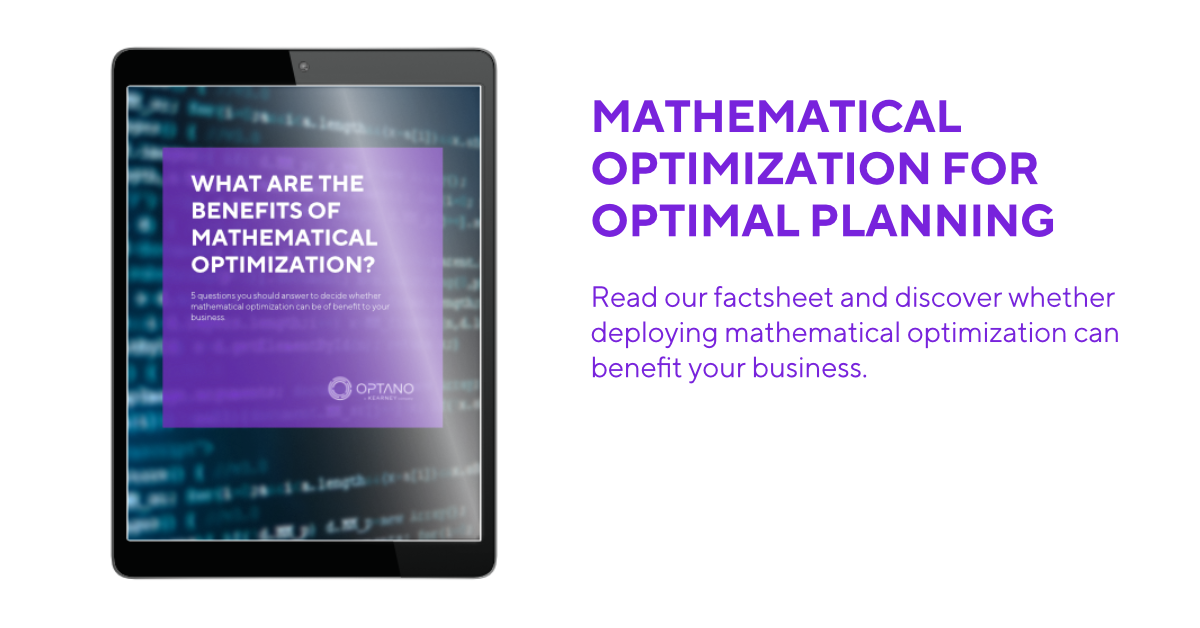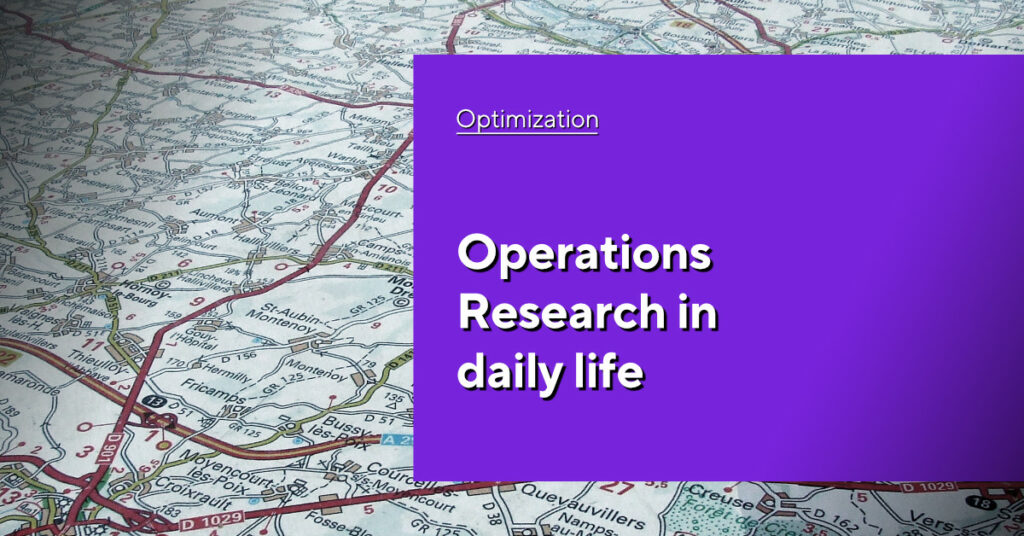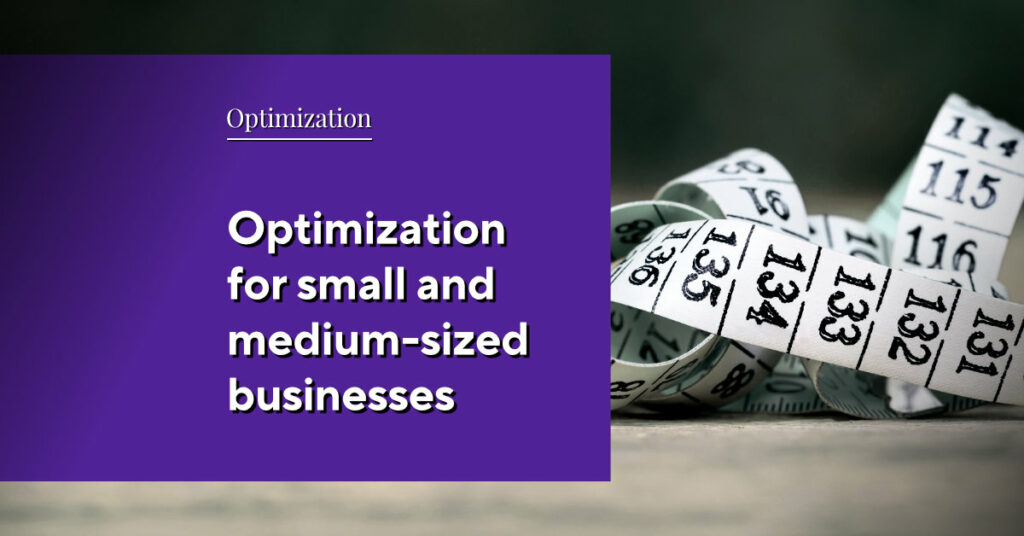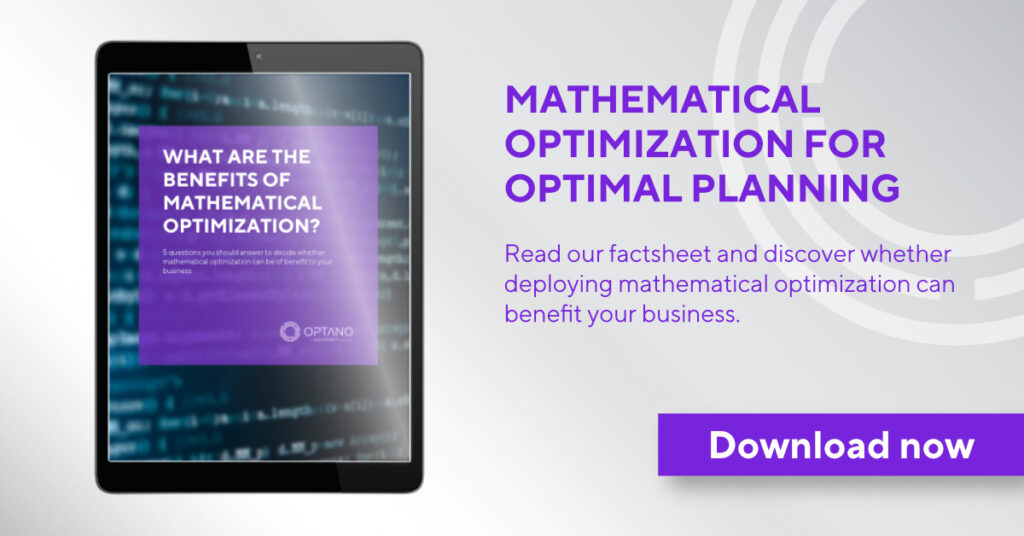Managing disruption in production planning
Disruption: a break or interruption in the normal course or continuation of some activity, process, etc.” – Merriam Webster Dictionary
Going by this definition, who has not encountered disruption at some time or other? A cancelled train because of
technical problems or bad weather when you are going to that all-important job interview. A highly urgent e-mail you cannot send because your internet is down. Or the venue you had booked for your birthday party to which 80 people have been invited and which now calls to inform you of a burst water pipe which has caused severe water damage so they have to cancel – two days beforehand! Disruptions are simply inevitable in all areas of life.
Disruptions in production and their impact
Highly complex business operations such as production planning are always prone to disruption. Exactly how deep their impact can be depends not only on the severity of the disruption itself, but also on how well equipped companies are to respond to the situation fast and flexibly. Common disruptions in production planning can be:
- Internal disruptions: machine breakdowns, raw material shortages, employee unavailability, unforeseen changes in demand, product recalls.
- External and man-made disruptions: Problems at the supplier end (e.g. delays in delivery), hazards such as fire or explosions., a breakdown in public utilities (e.g. water, electricity, telecommunications, etc) and the infrastructure.
- Force majeure: natural catastrophes, strikes, trade conflicts, border closures and regional conflicts.
Many of the above events may only be temporary disruptions. However, they can still have a significant, even long-term effect on production and ultimately on a company’s performance in terms of profitability, efficiency and customer
satisfaction which then considerably weakens its market position.
However, in the last decade or so, the business world has also experienced several “shocks”. These are (in part) unforeseen events which have a ripple effect, the ramifications of which can last for years. Noteworthy examples include the earthquake and subsequent tsunami which led to the Fukushima nuclear accident, Brexit, the blockade of the Suez Canal by the Evergreen container ship – and of course the COVID-19 pandemic as well as the current war in Ukaine.
The outbreak of the pandemic sent shockwaves throughout the global economy. It triggered panic-buying and hoarding among consumers. The health, hygiene and food industries were unable to keep pace with the sudden surge in the
demand for their products. This led to disrupted production processes and played havoc with supply chains.
At the other extreme, other branches experienced very different disruptions – such as a plummet in the demand for their goods and services due to Corona restrictions and lockdwns. Some, like the travel and tourism industry, ground to a
temporary halt.
Although the majority of countries have now relaxed restrictions and it is now business as usual for stores and companies, some did not survive this difficult period and others are recovering very slowly. Even companies which had sound risk management systems in place before the pandemic, have not emerged entirely unscathed. Companies which had not focused more on resilience and risk management, are starting to do so now.
More interesting articles
Turning disruption into opportunity
Disruptions may cause havoc initially but they are not necessarily a bad thing in the long run. Another definition of disrution is to describe the introduction of new technologies, business models, or service that may appear
unnecessary at first, but later become essential. In other words, this is something positive. As CISCO’s CEO, John T. Chambers, once said:
„When you’re a large company with a significant market share, it’s tempting to view market disruptions as a threat, but we view them as an opportunity.“
And this need not only apply to large companies. Any company that is willing to take advantage of a disruption and find ways to make production planning run more smoothly can only benefit.
For example, the pandemic has led many companies to re-evaluate their production and supply chain strategies. This
involves reconsidering single sourcing and moving towards multiple sourcing instead. In this way they are less reliant on one supplier and better able to react to changes or disruption which could jeopardize capacities. Local manufacturing will likely become more preferable instead of relying on production facilities at the other end of the world. This serves to eliminate hold-ups caused by delays at customs and in overseas shipment. Production processes must also become more flexible and agile in order to respond to demand fluctuations.
Finally, and probably most importantly, investing in new technology is critical to help businesses plan ahead far more
efficiently, identify risks early on and make pre-emptive decisions. After all, a business that still uses manual planning methods today cannot compete with the efficiency, accuracy and optimal decision-making solutions that sophisticated optimization technology can provide. This really is a business “disruption” that companies should be embracing. There are various options available and companies need to choose an application that is best suited to the business at hand.

Are you interested in our factsheet?
What are the benefits of mathematical optimization?
Mathematical optimization - a powerful optimization tool
For operations such as production planning, which often involves having to solve a whole range of complex problems, mathematical optimization technology is a wise choice. This is an AI technology which can be used to find optimal
solutions to a wide variety of very complex business problems, thus helping businesses get the best out of their available resources and data.
Using Prescriptive Analytics, mathematical optimization applications capture your real-world business problem in a mathematical model which contains your company’s objectives, variables and constraints. With the use of special solvers, it can then generate optimal solutions to your business problems. You can learn more about how mathematical
optimization works in our factsheet.
An optimization application like OPTANO is a powerful mathematical optimization tool that can find solutions to your most challenging problems and support you in your decision-making processes. It is highly customized to suit your
specific requirements, such as the optimization of your supply chain or production plans, even your entire network. OPTANO makes all your planning processes efficient, fast and flexible so that disruptions in the future no longer hit you unaware.
There will always be disruptions of some sort, but with OPTANO you can plan ahead, identify any risks early on and
mitigate these as early as possible , thus strengthening your company’s position in the market.
Curious? Then why not contact us today? We look forward to answering any questions you may have on this topic.
Have you got your copy of our factsheet on this topic yet?

In our factsheet “What are the benefits of mathematical optimization?” we ask 5 questions to help you assess whether mathematical optimization brings benefits to your organization.
To obtain our factsheet, all you need to do is enter your contact details in the space below. A pop-up window will then open to download the whitepaper. Please note that by providing us with your email address, you agree that we may contact you on this topic. You may revoke this agreement at any time by contacting [email protected].







